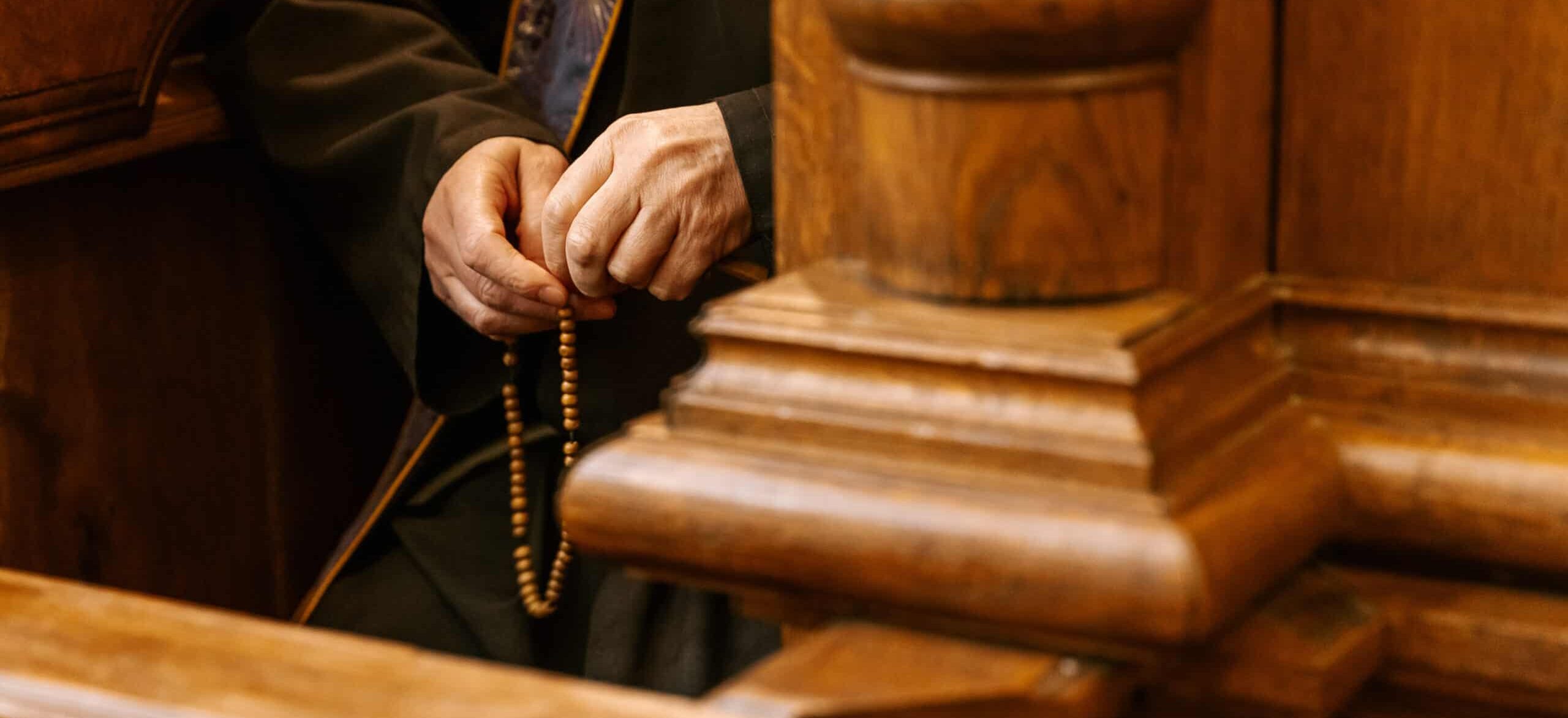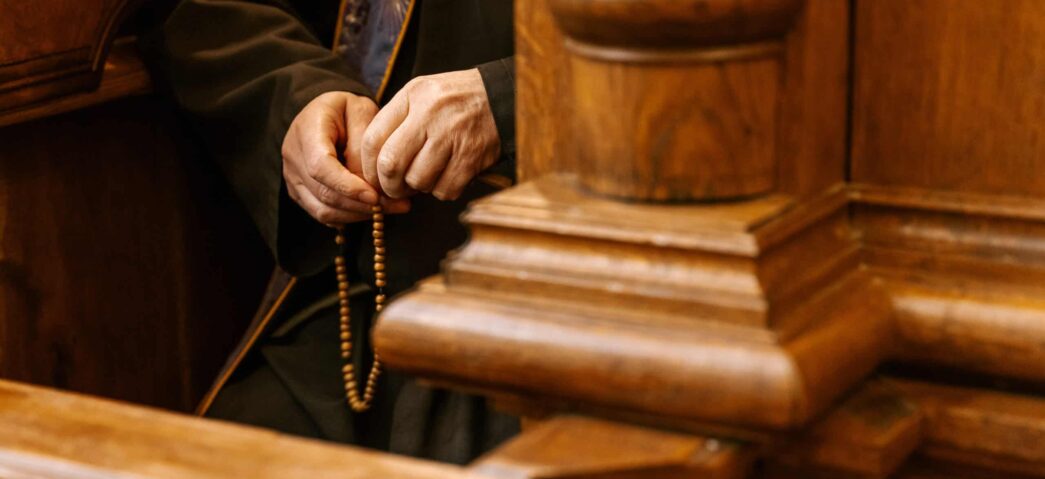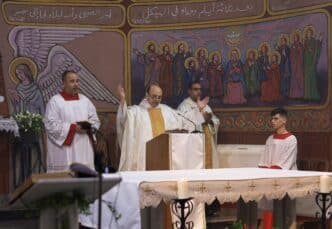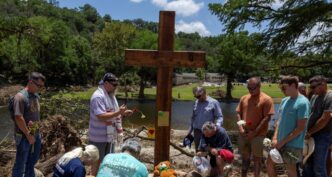(OSV News) — A contested Washington state law that would require priests to violate the seal of confession to report abuse “represents an egregious violation of the free exercise clause of the First Amendment,” Bishop Robert E. Barron of Winona-Rochester, Minnesota, who is a member of the U.S. Religious Liberty Commission, told OSV News.
“That the state could interfere in this most sacred discipline of the church should alarm not only Catholics, but indeed all Americans who revere religious liberty,” he said in a statement emailed to OSV News July 7.
Bishop Barron, founder of the Word on Fire media ministry, filed a friend-of-the-court brief July 4 in a case brought May 29 by Archbishop Paul D. Etienne of Seattle and other bishops and clergy against Washington Gov. Bob Ferguson and his administration over the recently passed law on mandated abuse reporting, which lacks exceptions for the clergy-penitent privilege.
Washington’s Catholic bishops had supported a version of the bill that had included the exception.
The law, set to take effect July 27, would specifically require clergy — defined as “any regularly licensed, accredited, or ordained minister, priest, rabbi, imam, elder” or similar religious or spiritual leader — to report suspected abuse based on information obtained “solely as a result of a privileged communication.”
According to the law, other mandated reporters — such as school personnel, nurses, counselors, psychologists and child social services workers — are not required to divulge such information if obtained confidentially.
A ‘disrespect for the confessional seal’
In May, the Department of Justice opened a civil rights investigation into the legislation’s development and passage.
In June, the Orthodox Church in America and several other Orthodox churches filed a separate suit against Ferguson and his administration over the law, stating that “since at least the fourth century A.D., the Christian Church has consistently prohibited priests from disclosing what they hear in confession.
“The Orthodox Church today teaches that priests have a strict religious duty to maintain the absolute confidentiality of what is disclosed in the Sacrament of Confession,” the Orthodox churches said in their suit. “Violating this mandatory religious obligation is a canonical crime and a grave sin, with severe consequences for the offending priest, including removal from the priesthood.”
In his amicus brief, Bishop Barron — who as auxiliary bishop in Los Angeles had countered similar proposed legislation — said that in moving ahead with the law, “Washington made little attempt to hide its intolerance for the categorical seal of Confession — openly targeting this religious sacrament for special disabilities under Washington’s mandatory reporting law and thereby trampling on our Constitution’s promise of religious neutrality.”
He said the law “is manifestly premised on a disrespect for the confessional seal,” and is at odds with a “venerable tradition” of honoring the clergy-penitent privilege, which has largely been upheld by the nation’s courts.

Specifically, said Bishop Barron, “while Washington’s reporting requirement for supervisors generally exempts communications covered by Washington’s evidentiary privileges — including for spousal, attorney-client, and clergy-penitent privileges — SB 5375 (Washington’s law) stunningly removes this exception solely for ‘members of the clergy.'”
Adhering to canon law
In his brief, Bishop Barron extensively cited the case brought by Colorado baker Jack Phillips, a devout Christian whose right to refuse a wedding cake order for a same-sex couple was ultimately upheld by the U.S. Supreme Court on the grounds of religious liberty.
The bishop noted that “few religious practices are more misunderstood than the sacred seal of Confession in the Catholic Church.”
Confession — part of the sacrament of reconciliation — was instituted by Jesus Christ and given to the apostles, enabling “a sinner” to access “the healing and forgiving grace of Christ,” with the priest “operating in the very person of Christ,” so that “the penitent is speaking to and hearing from the Lord himself,” wrote Bishop Barron.
“Hence, absolutely nothing ought to stand in the way of a sinner who seeks this font of grace,” Bishop Barron said in his brief. “This gives rise to the indispensable importance of the seal: If a penitent is aware the priest might (let alone must) share with others what was given in the most sacred confidence, he or she would be reluctant indeed to ever approach Confession.”
Canon law, the church’s primary legal code, holds that “the sacramental seal” of the confessional is “inviolable,” and therefore “it is absolutely forbidden for a confessor to betray in any way a penitent in words or in any manner and for any reason.”
Even when there is no danger of such revelation, canon law prohibits a confessor “completely from using knowledge acquired from confession to the detriment of the penitent.”
A long history
In 2019, the Vatican’s Apostolic Penitentiary issued a note on the importance of the internal forum and the inviolability of the sacramental seal.
The note affirmed that the “inviolable secrecy of Confession comes directly from the revealed divine right and is rooted in the very nature of the Sacrament, to the point of not admitting any exception in the ecclesial sphere, nor, least of all, in the civil one.”
As a result, any civil legislation seeking to repeal clergy-penitent protections faces a head-on collision with canon law, Father John Paul Kimes, associate professor of the practice at Notre Dame Law School, told OSV News earlier this year.
Father Kimes, who is also the Raymond of Peñafort Fellow in canon law at Notre Dame’s de Nicola Center for Ethics and Culture, said while civil law would assign the privilege to a party — historically, the penitent who has been accused — “in canon law, the seal (of confession) belongs to no one,” neither the priest nor the penitent, said Father Kimes. “It belongs to the sacrament.”
As a result, “at the end of the day, this is an unresolvable conflict between civil and canon law,” Father Kimes said.
He noted the clash has a long history, with the first U.S. civil case in which the issue was treated, People v. Philips, dating back to 1813.
In that case, Father Anthony Kohlmann — who had been subpoenaed by a grand jury — refused to break the seal of the confessional by testifying against defendant Daniel Philips, who indicated he had spoken with the priest about receiving stolen goods.
New York City Mayor DeWitt Clinton, presiding over the court of general sessions, ruled that “it is essential to the free exercise of a religion that its ordinances should be administered — that its ceremonies as well as its essentials should be protected.”
Clinton stressed that compelling such revelations would violate constitutional guarantees of religious freedom, stating that “secrecy is of the essence of penance.” Forcing priests to reveal disclosures from penitents was to in essence “declare that there shall be no penance,” and if such measures were permitted, “this important branch of the Roman Catholic religion would be thus annihilated.”








